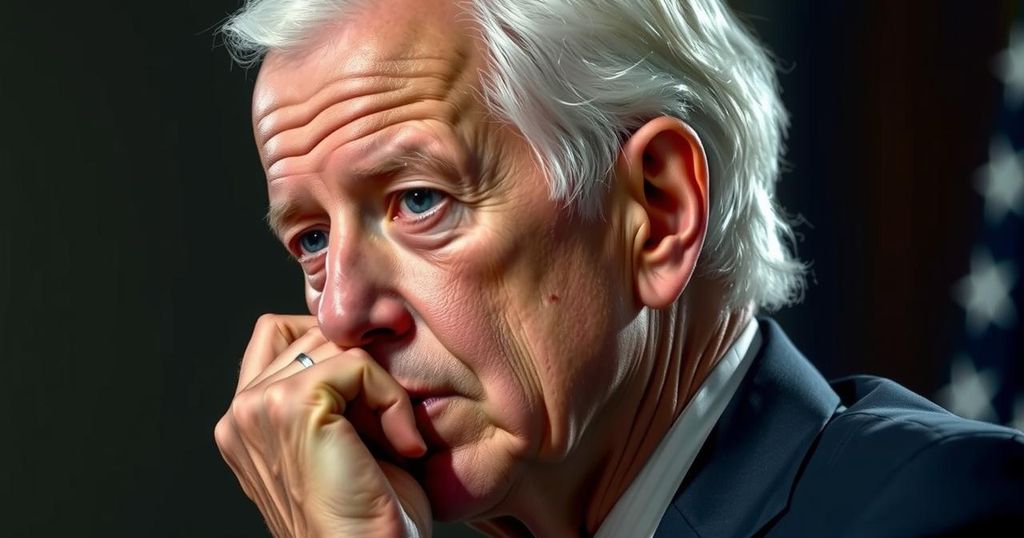Biden’s Silence Post-2024 Election: Implications for Leadership and Legacy

President Joe Biden has largely remained silent following the defeat of Democrats in the 2024 elections, offering limited commentary on the outcome and engaging minimally with the media. His strategic silence raises questions about leadership transition and Biden’s future role, as analysts suggest a potential shift towards a new generation of Democratic leaders. The implications of this quietude are significant for Biden’s legacy and the party’s direction.
Following the disappointing electoral results for the Democratic Party, President Joe Biden has significantly decreased his public engagements and remarks. Post-election, Biden has refrained from making profound comments or assessments regarding the loss, demonstrating a limited presence and responsiveness in the media. His only notable comment was a brief speech in the Rose Garden urging unity among Americans. Since that day, Biden’s silence intensified as he traveled to South America, where he engaged minimally with the press regarding pressing issues, including his reflections on the election.
Notably, Biden’s absence of commentary during such a critical period raises concerns. Analysts suggest that this silence may indicate a shift in leadership dynamics, with figures like David Axelrod suggesting it is now up to a younger generation of leaders to determine the path forward for the nation. Edward Frantz echoed these sentiments, expressing that Biden’s quietude could parallel the unceremonious departure of former President Jimmy Carter, who was similarly perceived as irrelevant towards the end of his tenure.
Despite Biden’s public restraint, his aides claim that he is processing the election results privately, understanding the importance of maintaining traditions such as ensuring a peaceful transition of power. This approach contrasts sharply with Trump’s previous administration, where norms were often disregarded. Throughout Biden’s South America trip, he has chosen not to hold press conferences, and instead, left crucial topics for his allies to address publicly, especially concerning military support for Ukraine.
While Biden did offer brief acknowledgments of media questions, he has largely avoided substantive discussions about the outcomes of the election or other significant matters. His avoidance of press interactions has not gone unnoticed, with reporters pressing him for commentary throughout his travels. Ultimately, Biden’s muted response may suggest a contemplative, albeit cautious, approach in navigating the implications of the recent electoral defeat.
The context surrounding President Joe Biden’s silence following the 2024 elections is significant, especially given the weight of the Democratic Party’s loss. The elections saw Republican candidates, including Donald Trump, securing control, leading Biden to reflect on his approach in a politically charged environment. Biden’s historical emphasis on collaboration and the principles of democracy necessitate his next steps in leadership as he grapples with the consequences of his party’s defeat. His subdued demeanor raises questions about the future direction of his presidency and the Democratic Party.
In conclusion, President Biden’s quietude after the significant electoral defeat may reflect a need for introspection and strategic reassessment. His limited public engagement suggests a shift in focus towards ensuring a respectful transition while navigating the delicate political landscape. As the nation anticipates the emergence of new leadership, Biden’s silence may serve as a pivotal moment in defining his legacy and the future of the Democratic Party.
Original Source: dailyjournal.net







